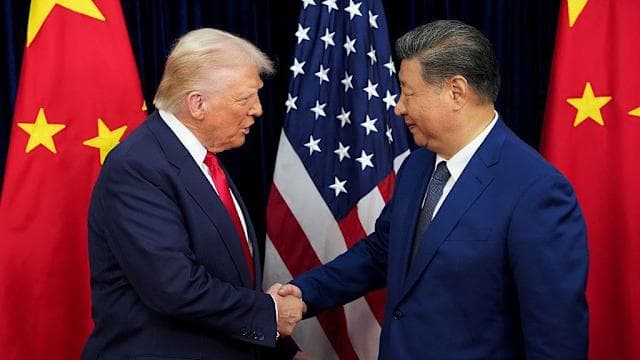We're loading the full news article for you. This includes the article content, images, author information, and related articles.
A landmark trade agreement to ease the global automotive chip shortage could alleviate production bottlenecks and stabilize vehicle prices for Kenyan consumers and local assemblers.

The White House announced on Sunday, November 2, 2025, that China has agreed to ease a critical export ban on automotive computer chips as part of a comprehensive trade deal with the United States. The agreement was reached following a meeting between U.S. President Donald Trump and Chinese President Xi Jinping in Busan, South Korea, aimed at de-escalating a protracted trade war between the world's two largest economies. The deal also encompasses U.S. soybean exports, the supply of rare earth minerals, and materials used in the production of the synthetic opioid fentanyl. A spokesperson for the Chinese Embassy in Washington confirmed the agreement, stating that China-U.S. economic relations are "mutually beneficial in nature," according to a statement shared with the BBC. In Washington, Treasury Secretary Scott Bessent told CNN on Sunday, "We don't want to decouple from China… (But) they've shown themselves to be an unreliable partner."
For Kenya, the most significant aspect of this agreement is the potential relief it offers to the local automotive assembly sector. The global semiconductor shortage has severely hampered production for Kenyan vehicle assemblers, including Isuzu East Africa, Associated Vehicle Assemblers (AVA) in Mombasa, and Kenya Vehicle Manufacturers (KVM) in Thika. These companies, which assemble vehicles for major brands like Toyota, Volkswagen, and Mitsubishi, have faced production delays and increased costs, contributing to higher prices for new vehicles in the Kenyan market. The easing of the chip export ban is expected to stabilize the supply chain, potentially leading to increased production capacity and more competitive pricing for Kenyan consumers who have been grappling with inflated costs for both new and second-hand vehicles.
Beyond semiconductors, the trade deal addresses other key commodities with varying degrees of relevance to Kenya and the East Africa region. The agreement for China to resume large-scale purchases of U.S. soybeans is primarily a concern for major agricultural economies. While Kenya is not a major soybean exporter, fluctuations in global commodity prices resulting from the deal could indirectly affect the agricultural sector. Of more direct strategic interest is the agreement on rare earth minerals. China had previously restricted exports of these materials, which are vital for manufacturing electronics, electric vehicles, and defense technology. This development comes as Kenya explores its own significant rare earth deposits, particularly at Mrima Hill in Kwale County, which is estimated to hold deposits worth over $62 billion. An adjustment in global supply dynamics could influence future investment and policy decisions regarding Kenya's mining sector as international firms from the US, China, and Australia show increasing interest.
The deal's inclusion of measures to curb the flow of fentanyl precursors from China to the U.S. highlights a shared security and public health concern. While the opioid crisis is most acute in North America, East Africa is a known transit route for illicit drugs, including heroin. International cooperation to disrupt the supply chains of dangerous narcotics is relevant to Kenyan law enforcement agencies working to combat transnational organized crime. The Financial Action Task Force (FATF) has noted that organised crime groups are fueling a synthetic opioid crisis with impacts felt in parts of Africa.
The agreement marks a significant, albeit potentially temporary, truce in the U.S.-China trade war that has created global business uncertainty for years. The series of retaliatory tariffs initiated by the Trump administration had disrupted supply chains and increased costs across numerous industries worldwide. While the deal offers a reprieve, comments from Treasury Secretary Bessent underscore the persistent tensions and lack of trust between the two nations. For Kenya and other developing economies, the stability of the U.S.-China relationship is crucial, as prolonged conflict between the economic superpowers can have far-reaching ripple effects on global growth, trade flows, and investment, impacting local economic prospects.
Keep the conversation in one place—threads here stay linked to the story and in the forums.
Sign in to start a discussion
Start a conversation about this story and keep it linked here.
Other hot threads
E-sports and Gaming Community in Kenya
Active 9 months ago
The Role of Technology in Modern Agriculture (AgriTech)
Active 9 months ago
Popular Recreational Activities Across Counties
Active 9 months ago
Investing in Youth Sports Development Programs
Active 9 months ago